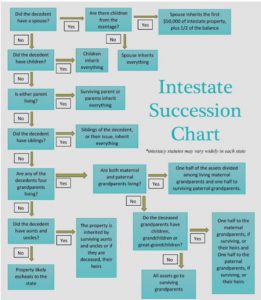Two of the most common questions when it comes to estate plans are: do I need one and, if I do, when should I start? For the vast majority of people, the answers to these questions are quite simple. They are “yes” and “now.” Nearly everyone can benefit by doing some form of estate planning and, as none of us (young or old) are promised tomorrow, there’s no time like the present to take control of the distribution of your assets after your death and protect those you care about. To make sure the estate plan you create will achieve the objectives you have, be sure to contact a knowledgeable Hoboken estate planning attorney who can show you the most effective ways to realize your goals.
Sometimes, the deaths of celebrities and the estate plans of celebrities can serve as important cautionary tales for the rest of us. They can make for a sort of “what not to do” story.
This, arguably, was the case with Argentine soccer superstar Diego Maradona. In late November, the famous footballer passed away at age 60. According to the BBC, Maradona’s estate reportedly included a “portfolio of properties, lucrative image rights and an amphibious tank from Belarus.”
What Maradona didn’t have, according to the BBC, was an estate plan. A Buenos Aires attorney told the BBC that the “culture of Argentina is not to draft a will.”
Here in New Jersey, the culture is different and, if you were someone with a life situation (and financial situation) like Maradona, you would have many factors pointing toward a high need for estate planning.
For one thing, the status of Maradona’s heirs was complicated. Maradona claimed eight children with six different women. Two more children, born of a seventh woman, claimed after Maradona’s death that he was their father, according to the BBC report. Given Maradona’s fame, it is reasonable to expect that others will claim to be his children. Many of those will probably be false, but the potential exists that some might be authentic.
How you can leave out the relatives you want to leave out
A good will or revocable living trust can navigate around complicated family situations like that. The law says that you cannot disinherit a spouse who survives you. Other than that, you have extremely broad freedom to include or exclude whomever you want in your estate plan, including leaving nothing to (a/k/a disinheriting) your children.
Say, for example, you have five children, including A, B and C from your first marriage and D and E from your second and current marriage. You can, if you desire, leave all your assets to your spouse, D and E – and leave A, B, and C nothing – if that is your preference.
However, if that’s you, be careful! Accomplishing goals like disinheriting children requires estate planning documents that are worded properly and carefully to avoid potential risks. Those risks come primarily from those disinherited children (or people who allege to be your children.) If your plan documents are not worded properly, that person (or people) may be able to argue that they were something the law calls an “omitted heir.” If the court accepts that argument, then that person gets a share of your estate. (A skilled estate planning attorney can show you how that “proper wording” works to avoid this possible trap.)
Almost everyone needs an estate plan. For those seeking to implement an estate plan, the best time is now, and the best way to ensure that all your estate planning goals will someday be realized is to make sure you have the legal assistance you need to get it done. Look to knowledgeable Hoboken estate planning attorney Frank Marciano to be that sort of effective advocate who can provide you with the advice and counsel you need. To set up a consultation and find out how we can help, contact the office online or call 201.656.1000.
 Hoboken Family Law Blog
Hoboken Family Law Blog


